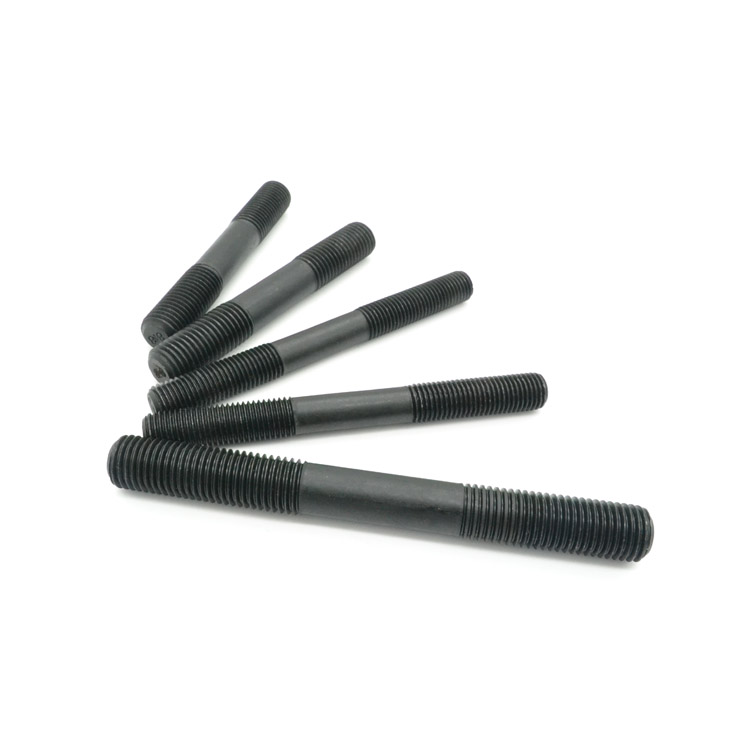Premium Durable Truck Bolts for Heavy-Duty Performance and Reliability
Nov . 27, 2024 02:52 Back to list
Premium Durable Truck Bolts for Heavy-Duty Performance and Reliability
The Importance of High-Quality Truck Bolts in the Automotive Industry
In the automotive industry, the significance of high-quality truck bolts cannot be overstated. These seemingly simple components play a critical role in ensuring the safety, reliability, and overall performance of trucks. The design and manufacturing of bolts used in heavy-duty vehicles require meticulous attention to detail, given the rigorous demands placed on these trucks from both operational and environmental perspectives.
Understanding Truck Bolts
Truck bolts, often categorized by their size, strength, and material composition, are essential fasteners that hold various components of a truck together. They are utilized in engine assembly, suspension systems, chassis construction, and countless other applications. The performance of each truck bolt directly influences the integrity of the entire vehicle, making it imperative that they are manufactured to high standards.
The Risks of Low-Quality Bolts
Using low-quality truck bolts can lead to catastrophic failures. Poorly made bolts may not withstand the immense stress and strain that trucks endure. Factors such as vibration, torque, and temperature fluctuations can cause weak bolts to fracture, resulting in severe accidents or costly downtime. For instance, if a bolt in the suspension system fails, it can lead to loss of control, endangering the driver and others on the road.
Moreover, low-quality bolts often corrode or degrade over time, particularly in harsh conditions, such as exposure to road salt, moisture, and extreme temperatures. This corrosion can weaken the bolts, making them susceptible to failure. In contrast, high-quality bolts are typically made from premium materials and may include protective coatings to resist corrosion and environmental damage, significantly enhancing their longevity.
Characteristics of High-Quality Truck Bolts
high quality truck bolts

High-quality truck bolts are engineered to meet or exceed industry standards. They are manufactured from robust materials such as carbon steel, stainless steel, or alloy steel, which provide superior strength and durability. Heat treatment processes are often employed to enhance the mechanical properties of the bolts, such as tensile strength and hardness.
Additionally, dimensional accuracy is critical. High-quality bolts are produced with precise specifications to ensure they fit perfectly within their designated applications. This precision not only contributes to the structural integrity of the vehicle but also facilitates easier assembly and maintenance.
Another essential aspect of high-quality truck bolts is their resistance to fatigue. Trucks operate under varying loads and conditions, and the materials used in these bolts need to handle repeated stress without deforming or breaking. Manufacturers often conduct rigorous testing to certify that their bolts can resist fatigue, which is essential for the safety of any truck on the road.
The Economic Perspective
Investing in high-quality truck bolts may seem costlier in the short term, but it can lead to substantial savings in the long run. With increased durability and performance, trucks equipped with premium bolts often experience fewer mechanical failures and lower maintenance costs. This reliability can translate to reduced downtime and greater productivity, making high-quality truck bolts a wise investment for truck owners and fleet operators.
Conclusion
In conclusion, high-quality truck bolts are foundational components in the automotive sector, particularly for heavy-duty vehicles. Their role in ensuring safety, reliability, and performance cannot be overlooked. By prioritizing the use of top-tier bolts, manufacturers and operators can enhance the durability of their trucks and contribute to safer roads. The emphasis on quality in bolt production not only reflects a commitment to excellence but also fosters innovation and progress in the automotive industry. As we move forward, the importance of reliable fasteners, like truck bolts, will continue to play a pivotal role in shaping the future of transportation.
Latest news
-
High-Quality Panel Stud Bolt Reliable Panel Stud Bolt Factory & Suppliers
NewsJul.08,2025
-
High-Precision Fine Thread Locknuts Manufacturer & Supplier Custom Solutions
NewsJul.08,2025
-
PH Imperial Stud Bolt – High Strength Fasteners from Leading Supplier & Factory
NewsJul.07,2025
-
High-Quality Allen Wrench Bolts Leading Factory, Company & Suppliers
NewsJul.07,2025
-
Wholesale Ball Stud Bolt - High Quality Supplier & Factory Price Reliable Wholesale Ball Stud Bolt Company
NewsJul.06,2025
-
High-Strength Alloy Bolts Manufacturer & Supplier Quality Alloy Fasteners Factory
NewsJul.06,2025
